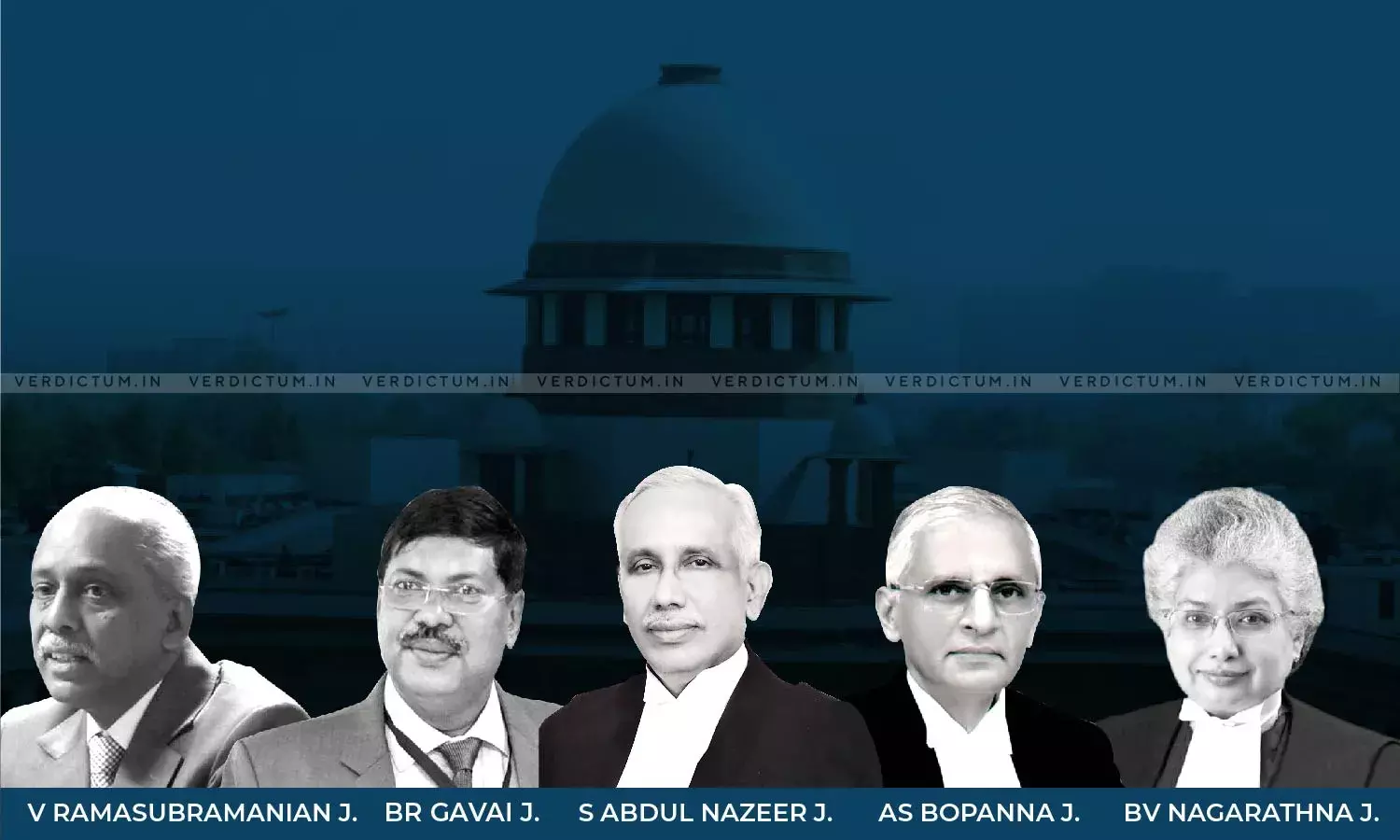Ministers' Freedom of Speech Cannot Be Subjected To Greater Restrictions Than A Common Individual: Constitution Bench

A Constitution Bench of the Supreme Court today ruled that public functionaries like Ministers, Members of Parliament, Members of Legislative Assembly cannot be subjected to more restriction as prescribed under Article 19(2) while exercising their freedom of speech and expression.
The Constitution Bench headed by Justice S Abdul Nazeer and comprising Justice AS Bopanna, Justice BR Gavai, Justice V Ramasubramanian and Justice BV Nagarathna had held that under the guise of invoking other fundamental rights, additional restrictions, not expressly provided under Article 19(2), cannot be imposed on the exercise of the right conferred under Article 19(1)(a).
The majority opinion has been rendered by Justice V Ramasubramanian being concurred by three other judges while an alternative opinion, dissenting on a few points has been authored by Justice BV Nagarathna.
The following questions were framed and answered by the Constitution Bench in response to the reference made to it:
(1) Can a fundamental right under Article 19 or 21 of the Constitution be claimed other than against the ‘State’ or its instrumentalities?
Majority Opinion- A fundamental right under Article 19, 21 can be enforced even against persons other than ‘state’ or its instrumentalities.
(2) Are the grounds specified in Article 19(2) exhaustive? Or, can restrictions on the right to free speech be imposed by invoking other fundamental rights?
Majority Opinion- The grounds lined up under Article 19(2) for restricting the right to free speech are exhaustive. Under the guise of invoking other fundamental rights, additional restrictions not found under Article 19(2) cannot be imposed on exercise of right conferred under Article 19(1)(a). [Article 19(2) allows the State to frame laws that pose reasonable restrictions on rights guaranteed under Article 19(1)]
(3) Whether a public statement by a Minister in relation to government business, which is violative of the constitutional rights of a citizen, can constitute a ‘constitutional tort’ as being an action which is an ‘improper abuse of public power’ and thereby actionable in damages?
Majority Opinion- A mere statement made by a minister inconsistent with the rights of a citizen of any part of Constitution may not constitute a violation of constitutional rights and become actionable as constitutional tort, but if as a consequence of such statement, any act of commission or omission is done by officers, then the same may be actionable as a constitutional charge.
(4) Whether the State is under a duty to affirmatively protect the rights of a citizen under Article 21 of the Constitution, even against a threat to the liberty of this citizen by the acts or omissions of another citizen or private agency?
Majority Opinion- The State is under a duty to affirmatively protect the rights of a person under Article 21, whenever there is a threat to personal liberty, even by a non-state actor.
(5) Can a statement by a Minister in relation to any affairs of the State or for the protection of Government, be attributed vicariously to the Government itself?
Majority Opinion- The statement made by a minister even traceable to affairs of the state or for protecting the government cannot be attributed vicariously to the Government by invoking the principle of collective responsibility.
The reference to a five-judge Bench was made in Oct 2017, on the writ petition filed by the family members of gang rape victims in Uttar Pradesh who approached the Supreme Court against objectionable remarks made by then Uttar Pradesh Minister & SP Leader Azam Khan.
Khan had called the incident a ‘political conspiracy’ against Uttar Pradesh Government and criticised the prosecutrix for saying that they were not getting justice.
It was contended that Khan’s statements had adversely affected the reputations of the two survivors. The victims apprehended the absence of a fair investigation in Uttar Pradesh and requested the top Court to transfer the case to another State. The Apex Court has ordered an unconditional apology to be submitted by Azam Khan.
After rendering opinion on the questions referred, the Constitution Bench has directed listing of the writ petition and Special Leave Petitions before the Chief Justice of India for further hearing.
Cause Title- Kaushal Kishor v. State of Uttar Pradesh

